Isotonix®維他命D+K2沖飲
$217.00
單瓶裝(30 食用份量
Isotonix維他命D+K2沖飲含有維他命D3,是具代謝活性形式的維他命D,並含有維他命K2,是一種支援血管健康和鈣質運用的維他命K。維他命D對於骨骼健康、心臟健康和免疫支援均有重要作用;與維他命K一同使用,能支援鈣的正常吸收並促進動脈健康。
益處
• 促進正常的骨質密度
• 促進動脈健康
• 支援免疫系統健康
• 有助維持骨骼健康
• 有助維持正常蝕骨細胞活動以支援骨質密度
• 幫助維持心血管健康
• 促進血管彈性
• 或有助於穩定血壓*
• 骨質密度低的女性獲發現出缺乏維他命D
*此產品沒有根 據《藥劑業及毒藥條例》或《中醫藥條例》註冊。為此產品作出的任何聲明亦沒有為進行該等註冊而接受評核。此產品並不供作診斷、治療或預防任何疾病之用。

產品分類

不含麩質 – 本產品不含可檢測出之麩質*
不含可檢測出之基改成份(GMO) – 本產品不含可檢測出之基因改造生物成份
素食品 – 本產品為素食產品
等滲壓營養補充沖飲 – 易於飲用的營養補充品 / 健康食品,透過等滲壓狀態達致更佳的營養吸收
品質標準 – 良好生產規範(GMP)運作與標準化成份
已檢測:重金屬丶微生物污染物丶過敏原丶效力丶純度及特性
*美國食品藥品監督管理局(FDA)將含有少於20PPM麩質的製成產品列為不含麩質
詳細資料
Isotonix維他命D+K2沖飲含有維他命D3,是具代謝活性形式的維他命D,並含有維他命K2,是一種支援血管健康和鈣質運用的維他命K。維他命D對於骨骼健康、心臟健康和免疫支援均有重要作用;與維他命K一同使用,能支援鈣的正常吸收並促進動脈健康。
Isotonix維他命D+K2沖飲是首個以等滲壓方式同時提供兩種強效維他命的產品。Isotonix維他命D+K2沖飲中加入維他命K,因為維他命K和D配合使用成效顯著,可共同支援鈣的吸收和運用。維他命K支援鈣質正常輸送到骨骼,並促進動脈健康。現時已發現了至少兩種以天然形式存在的維他命K,名為K1和K2。雖然這兩種維他命K形式有許多相似之處,但也有一些重要的區別。
維他命K1和K2最顯著的區別在於其化學結構,使它們具有不同的藥代動力學的特性。維他命K1主要儲存在肝臟中,高劑量的K1可能會干擾薄血丸和其他抗凝血藥物的作用。維他命K2的作用機制有別於K1,它主要被輸送至骨骼和血管。維他命K2有助維持骨質密度、支援鈣的運用和促進血管彈性。研究表示維他命K2不會對凝血藥物造成影響。不過,大多數含有維他命K(包括K1及/或K2)的產品都有警告標示,提醒服用抗凝血藥物人士不要使用此類產品。如果你正在服用薄血丸或其他抗凝血藥物,在使用任何含有維他命K1或K2的產品前,請先諮詢你的醫護人員。

了解更多
Isotonix®輸送系統
Isotonix系列產品是最有效的輸送營養補充品之一。配方採用先進和經科學證實的成分,提供高效輸送及卓越的效果。
Isotonix為等滲壓的原因是因為產品與人體內的液體相同,含有幾乎相同的濃縮可溶物,如盬、糖及礦物質。在此濃度下,營養及分子便能有效地通過細胞壁,用作細胞代謝。Isotonix產品配方中的果糖、葡萄糖、檸檬酸、碳酸氫鉀及其他主要成分搭配均衡,以確保正確調配飲用時達到等滲狀態。
Isotonix產品以適當的比例與濃度傳送營養素,以達致最佳的吸收。Isotonix是市場上經科學證實最有效的營養傳輸系統之一。
成份
維他命D3(膽鈣化醇)
維他命D屬於脂溶性的維他命,存在於某些食物當中,並在太陽照射到皮膚時,在體內自動產生。維他命D促進腸道更有效率地吸收鈣質,主要在十二指腸與空腸內,促進鈣結合蛋白的合成,以支援鈣質正常吸收及保留。維他命D亦促進骨骼正常生成及生長,並且透過成骨細胞與蝕骨細胞促進骨骼再生。
缺乏維他命D的原因可能包括缺乏日照、減少維他命D的皮膚合成、來自飲食的攝取量較低、腸道吸收不良、以及腎臟降低維他命D的新陳代謝與活性,這些原因皆會隨著老化而增加。缺乏維他命D與多種健康風險有關,還包括骨骼脆弱和肌肉無力。除了促進強健骨骼外,維他命D在健康方面還有其他作用,包括支援身體神經肌肉功能和免疫功能的正常調節。維他命D已證實能支援免疫調節,同時,透過補充維他命D能促進身體正常調節T細胞功能,以促進免疫健康。關於細胞健康方面,維他命D支援許多基因的調節,這些基因是負責蛋白質編碼,以調節正常細胞週期活動。體內維他命D的含量與細胞健康密切相關。最後,維他命D通過與VDR(維他命D受體)的相互作用,支援基因編碼腎素的健康運作,從而或有助於穩定血壓*。
*此產品沒有根據《藥劑業及毒藥條例》或《中醫藥條例》註冊。為此產品作出的任何聲明亦沒有為進行該等註冊而接受評核。此產品並不供作診斷、治療或預防任何疾病之用。
維他命K2(甲萘醌-7)
維他命K是一種脂溶性維他命,存在於肉類、蛋類、奶製品和納豆中。雖然維他命K2是一種脂溶性維他命,但人體只能儲存極少量;如果不透過恆常膳食攝取,體內儲存的維他命K2會迅速耗盡。天然的維他命K2,又稱為甲萘醌-7 (MK-7),是最具生物可利用性的維他命K形態,其在血液中的半衰期比其他形式的維他命K長。日本大豆食品的納豆,含有特別豐富的甲萘醌-7 (MK-7)。有關日本人進食納豆的研究發現,甲萘醌-7與骨骼和心血管健康有所相關。此關聯之重點在於維持適當地運用體內的鈣,進而確保有足夠的鈣質代謝以支援動脈與骨骼健康。此現象通常稱為鈣反常。
鈣反常可以簡單解釋為,把鈣放在正確的地方(例如,把鈣存放於骨骼結構中,而非動脈血管壁)。維他命K2促進參與鈣質運用的蛋白質合成,因此可支援鈣的骨內滯留與動脈健康。特殊抑長基因6蛋白質(Gas6)是一種依賴維他命K的蛋白質,存在於整個神經系統,以及心臟、肺、胃、腎臟與軟骨。雖然其作用的確切運作機制尚未確定,但Gas6似乎是一個細胞生長的調節劑,參與細胞活動,如細胞粘附、細胞增生和防止細胞凋亡。
常見問答
為何加入維他命K在Isotonix維他命D+K2沖飲?
本產品中加入維他命K因為維他命K和D配合使用成效顯著,能共同支援鈣的吸收和運用。維他命K支援鈣輸送到骨骼,並有助維持動脈健康。
Isotonix維他命D+K2沖飲對服用抗凝血藥物的人是否安全?
研究表示維他命K2不會對抗凝血藥物造成影響。不過,大多數含有維他命K(包括K1及/或K2)的產品都有警告標示,提醒服用抗凝血藥物人士不要使用此類產品。如果你正在服用薄血丸或其他抗凝血藥物,在使用任何含有維他命K1或K2的產品前,請先諮詢你的醫護人員。
如何使用Isotonix維他命D+K2沖飲?
將一小瓶蓋量(白色螺旋蓋)的粉末倒入透明瓶杯中。加水至瓶杯線上(60毫升),攪拌後飲用。作為營養補充品,每日飲用一次,或按你的醫護人員的指示飲用。隨餐一起食用,吸收效果最佳。
每天使用本產品多於一份食用量是否安全?
Isotonix維他命D+K2沖飲建議每日食用一份。如果要食用更多的份量,請先諮詢你的醫護人員。
維他命D可以從哪些食物中攝取?
鱈魚肝油、鮭魚、鯖鱼和吞拿魚皆富含維他命D。
Isotonix維他命D+K2沖飲安全嗎?
此產品安全並不含有害物質。本產品在美國製造,並經美國食品及藥物管理局檢測設備生產,符合生產規範。
科學
- Adorini L. Immunomodulatory effects of vitamin D receptor ligands in autoimmune diseases. International Immunopharmacology. 2(7):1017-1028, 2002.
- American Journal of Epidemiology. 168(8):915-24, 2008. · Deluca H et al. Vitamin D: its role and uses in immunology. FASEB Journal. 15(14):2579-2585, 2001.
- Argiles A et al. Blood pressure is correlated with vitamin D(3) serum levels in dialysis patients. Blood Purification. 20(4):370-375, 2002.
- Bekner K. The vitamin K-dependent carboxylase. Journal of Nutrition. 130(8):1877-1880, 2000.
- Binkley N et al. Vitamin K nutrition and osteoporosis. Journal of Nutrition. 125(7):1812-1821, 1995.
- Bischoff-Ferrari Het al. Fracture prevention with vitamin D supplementation: a meta-analysis of randomized controlled trials. JAMA. 293(18):2257-2264, 2005.
- Blackmore K et al. Vitamin D from dietary intake and sunlight exposure and the risk of hormone-receptor-defined breast cancer.
- Cantorna M et al. Mounting evidence for vitamin D as an environmental factor affecting autoimmune disease prevalence. Experimental Biology and Medicine ( Maywood ). 229(11):1136-1142, 2004.
- Cantorna M. Vitamin D and autoimmunity: is vitamin D status an environmental factor affecting autoimmune disease prevalence? Society for Experimental Biology and Medicine. 223:230-233, 2000.
- Chapuy M et al. Vitamin D3 and calcium to prevent hip fractures in the elderly women. New England Journal of Medicine. 327(23):1637-1642, 1992.
- Chlebowski R et al. Vitamin K in the treatment of cancer. Cancer Treatment Review. 12:49-63, 1985.
- Garber, A. K., et al. Comparison of phylloquinone bioavailability from food sources or a supplement in human subjects. Journal of Nutrition. 129(6):1201-1203, 1999.
- Garland C et al. The role of vitamin D in cancer prevention. American Journal of Public Health. 96(2):252-61, 2006.
- Giovannucci E et al. Prospective study of predictors of vitamin D status and cancer incidence and mortality in men. Journal of the National Cancer Institute. 98(7):451-459, 2006.
- Gorham E et al. Vitamin D and prevention of colorectal cancer. Journal Steroid Biochemistry and Molecular Biology. 97(1-2):179-94, 2005.
- Grant W and Holick M. Benefits and requirements of vitamin D for optimal health. Alternative Medicine Review. 10:94-111, 2005.
- Grant W et al. Reviews: A critical review of studies on vitamin D in relation to colorectal cancer. Nutrition and Cancer. 48(2):115-123, 2004.
- Guirguis-Blake J et al. Oral vitamin D3 decreases fracture risk in the elderly. Journal of Family Practice. 52(6):431-435, 2003.
- Gundberg C et al. Vitamin K status and bone health: an analysis of methods for determination under carboxylated osteocalcin. Journal of Clinical Endocrinology and Metabolism. 83(9):3258-3266, 1998.
- Habu D et al. Role of vitamin K2 in the development of hepatocellular carcinoma in women with viral cirrhosis of the liver. JAMA. 292(3):358-361, 2004.
- Harris D et al. Vitamin D and colon carcinogenesis. Journal of Nutrition. 134(12):3463S-3471S, 2004.
- Hayes C et al. The immunological functions of the vitamin D endocrine system. Cellular and Molecular Biology. 49(2):277-300, 2003.
- Hidaka T et al. Treatment for patients with postmenopausal osteoporosis who have been placed on HRT and show a decrease in bone mineral density: effects of concomitant administration of vitamin K(2). Journal of Bone and Mineral Metabolism. 20(4):235-239, 2002.
- Hiruma Y et al. Vitamin K(2) and geranylgeraniol, its side chain component, inhibited osteoclast formation in a different manner. Biochemical Biophysical Research Communications. 314(1):24-30, 2004.
- Hitomi M et al. Antitumor effects of vitamins K1, K2 and K3 on hepatocellular carcinoma in vitro and in vivo. International Journal of Oncology. 26(3):713-720, 2005.
- Holick, M. Vitamin D: Its role in cancer prevention and treatment. Progress in Biophysics and Molecular Biology. 92(1):49-59, 2006.
- Iwamoto J et al. Effects of vitamin K2 on osteoporosis. Current Pharmaceutical Design. 10(21):2557-2576, 2004.
- Iwamoto J et al. Treatment with vitamin D3 and/or vitamin K2 for postmenopausal osteoporosis. The Keio Journal of Medicine. 2003 Sep;52(3):147-50. Review. · Neogi, T., et al. Low vitamin K status is associated with osteoarthritis in the hand and knee. Arthritis and Rheumatism. 54(4):1255-1261, 2006.
- Kameda T et al. Vitamin K2 inhibits osteoclastic bone resorption by inducing osteoclast apoptosis. Biochemical and Biophysical Research Communications. 220(3):515-519, 1996.
- Knapen M et al. Vitamin K2 supplementation improves hip bone geometry and bone strength indices in postmenopausal women. Osteoporosis International. 18(7):963-72, 2007.
- Kristal-Boneh E et al. Association of calcitriol and blood pressure in normotensive men. Hypertension. 30(5):1289-1294, 1997.
- Li Y et al. 1,25-Dihydroxyvitamin D(3) is a negative endocrine regulator of the renin-angiotensin system. Journal of Clinical Investigation. 110(2):229-238, 2002.
- Li Y et al. Vitamin D regulation of the renin-angiotensin system. Journal of Cell Biochemistry. 88(2):327-331, 2003.
- Li Y et al. Vitamin D: a negative endocrine regulator of the renin-angiotensin system and blood pressure. Journal of Steroid Biochemistry and Molecular Biology. 89-90(1-5):387-392, 2004.
- Nelsestuen G et al. Vitamin K-dependent proteins. Vitamins and Hormones. 58:355-389, 2000.
- Nimptsch K et al. Dietary intake of vitamin K and risk of prostate cancer in the Heidelberg cohort of the European Prospective Investigation into Cancer and Nutrition. American Journal of Clinical Nutrition. 87:985-992, 2008.
- Nouso K et al. Regression of hepatocellular carcinoma during vitamin K administration. World Journal of Gastroenterology. 11(42):6722-6724, 2005.
- Pfeifer M et al. Effects of a short-term vitamin D(3) and calcium supplementation on blood pressure and parathyroid hormone levels in elderly women. Journal of Clinical Endocrinology and Metabolism. 86(4):1633-1637, 2001.
- Price P. Role of vitamin K-dependent proteins in bone metabolism. Annual Review of Nutrition. 8:565-583, 1988.
- Schaafsma, A., et al. Vitamin D3 and vitamin K1 supplementation of Dutch postmenopausal women with normal and low bone mineral densities: effects on serum 25-hydroxyvitamin D and carboxylated osteocalcin. European Journal of Clinical Nutrition. 54:626-631, 2000.
- Schleithoff S et al. Vitamin D supplementation improves cytokine profiles in patients with congestive heart failure: a double-blind, randomized, placebo-controlled trial. American Journal of Clinical Nutrition. 83(4):754-759, 2006.
- Shearer M. Role of vitamin K and Gla proteins in the pathophysiology of osteoporosis and vascular calcification. Current Opinion in Clinical Nutrition and Metabolic Care. 3(6):433-438, 2000.
- Shiraki, M., et al. Vitamin K2 (menatetrenone) effectively prevents fractures and sustains lumbar bone mineral density in osteoporosis. Journal of Bone & Mineral Research. 15:515-522, 2000.
- Sigmund C. Regulation of renin expression and blood pressure by vitamin D(3). Journal of Clinical Investigation. 110(2):155-156, 2002.
- Taira H et al. Menatetrenone (vitamin K2) acts directly on circulating human osteoclast precursors. Calcified Tissue International. 73(1):78-85, 2003.
- Trivedi Det al. Effect of four monthly oral vitamin D3 (cholecalciferol) supplementation on fractures and mortality in men and women living in the community: randomised double blind controlled trial. British Medical Journal. 326(7387):469, 2003.
- Van den Berghe G et al. Bone turnover in prolonged critical illness: effect of vitamin D. Journal of Clinical Endocrinology and Metabolism. 88(10):4623-4632, 2003.
- Vasquez A et al. The clinical importance of vitamin D (cholecalciferol): a paradigm shift with implications for all healthcare providers. Alternative Therapies. 10(5):28-38, 2004.
- Weber P. Management of osteoporosis: is there a role for vitamin K? International Journal for Vitamin and Nutrition Research. 67(5):350-6, 1997.
- Yokoyama T et al. Combination of vitamin K2 plus imatinib mesylate enhances induction of apoptosis in small cell lung cancer cell lines. International Journal of Oncoloy. 26(1):33-40, 2005.
- Yoshida T et al. Apoptosis induction of vitamin K2 in lung carcinoma cell lines: the possibility of vitamin K2 therapy for lung cancer. International Journal of Oncology. 23(3):627-632, 2003.
- Zitterman A et al. Low vitamin D status: a contributing factor in the pathogenesis of congestive heart failure? Journal of the American College of Cardiology. 41(1):105-112, 2003.











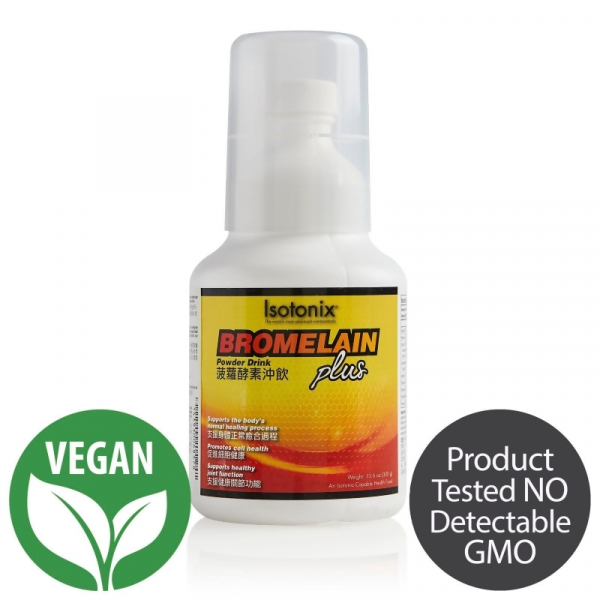
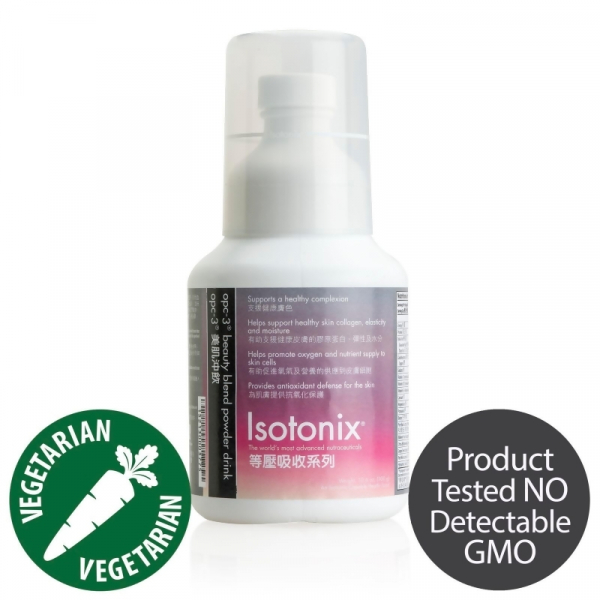
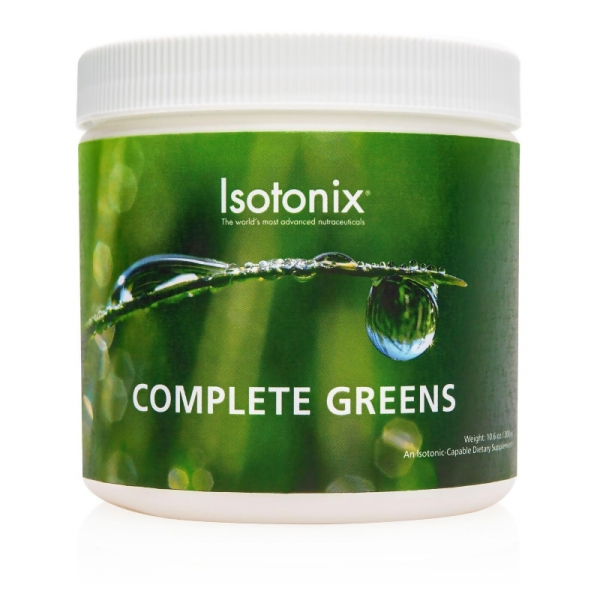
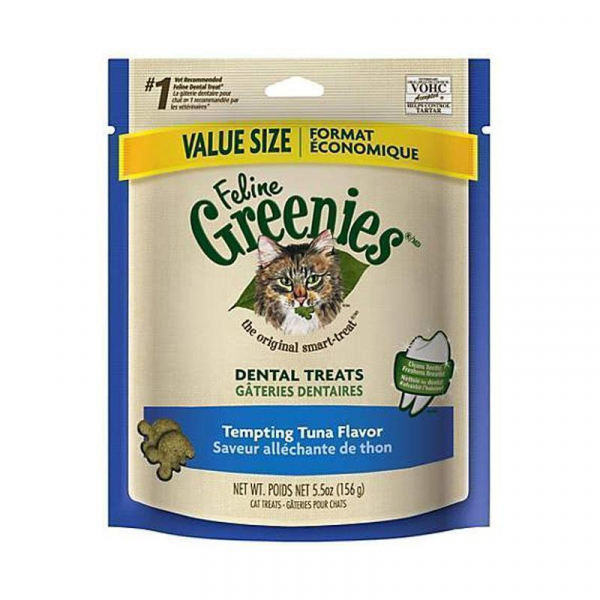 Greenies Feline Dental Treats 貓隻潔齒餅 - 吞拿魚味 / 5.5oz(156g)
Greenies Feline Dental Treats 貓隻潔齒餅 - 吞拿魚味 / 5.5oz(156g) 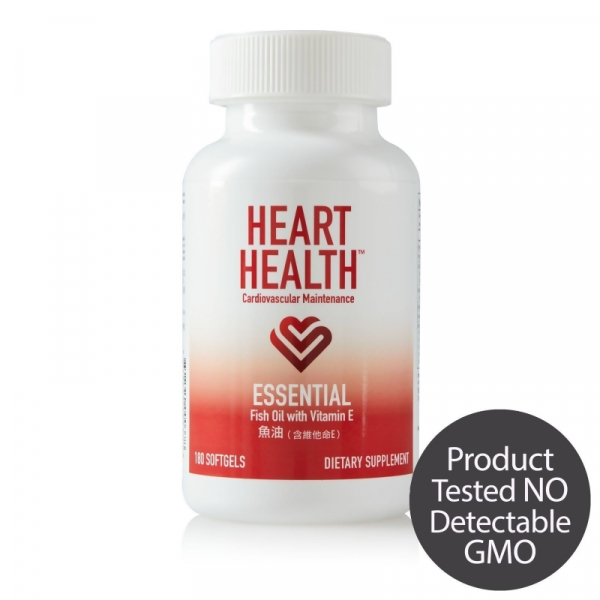 Heart Health™魚油(含維他命E)
Heart Health™魚油(含維他命E)  Taste of the Wild 貓糧 美國 無穀配方 成貓用 - Canyon River 鱒魚煙燻三文魚 / 2kg(4.41lbs)
Taste of the Wild 貓糧 美國 無穀配方 成貓用 - Canyon River 鱒魚煙燻三文魚 / 2kg(4.41lbs)  Greenies Feline Dental Treats 貓隻潔齒餅 - 貓草味 / 5.5oz(156g)
Greenies Feline Dental Treats 貓隻潔齒餅 - 貓草味 / 5.5oz(156g) 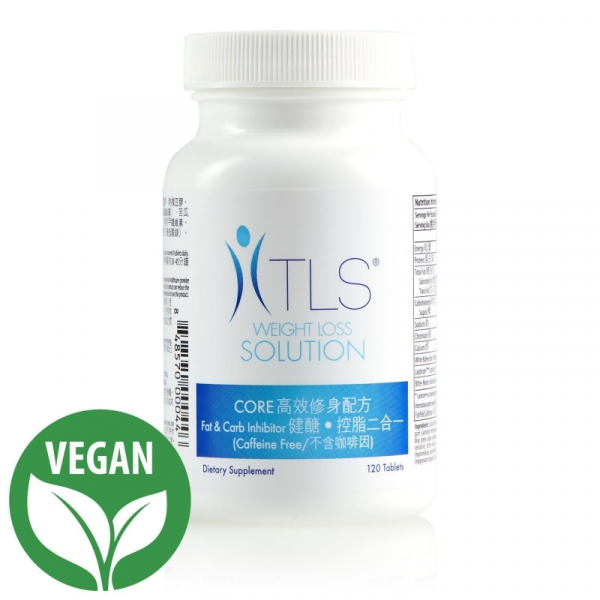 TLS®Core高效修身配方健醣 ‧ 控脂二合一
TLS®Core高效修身配方健醣 ‧ 控脂二合一 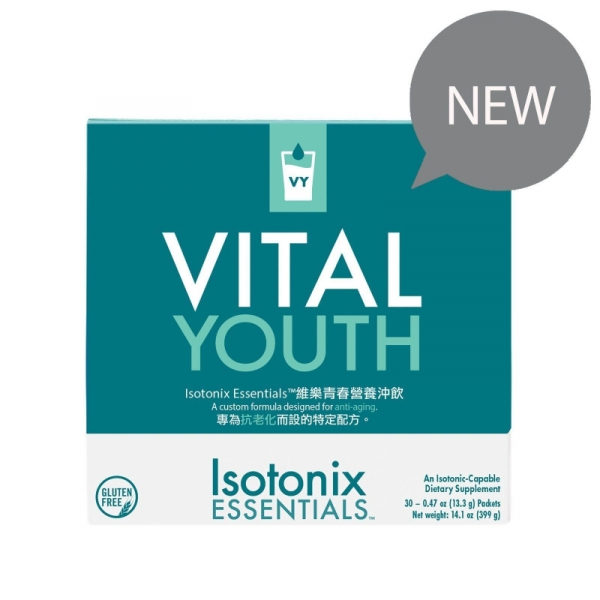 Isotonix Essentials™ 維樂青春營養沖飲
Isotonix Essentials™ 維樂青春營養沖飲  Shopping Annuity™狗狗雞肉蕃薯小食
Shopping Annuity™狗狗雞肉蕃薯小食 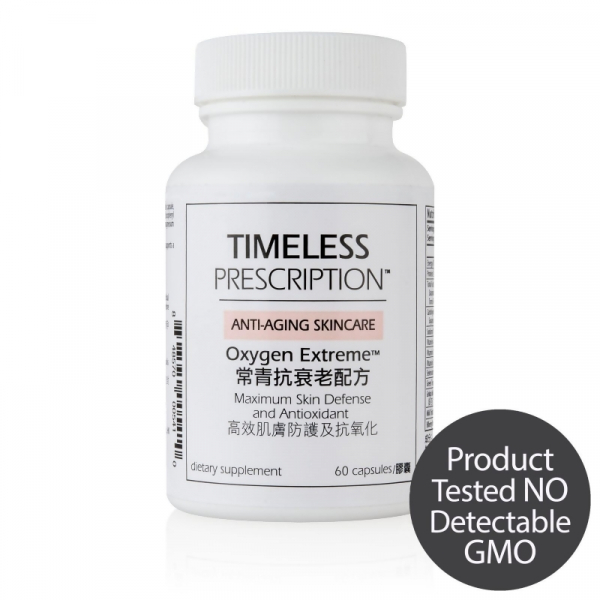 Timeless Prescription™ 常青抗衰老配方
Timeless Prescription™ 常青抗衰老配方